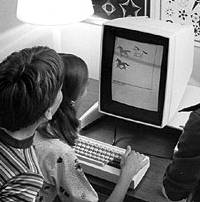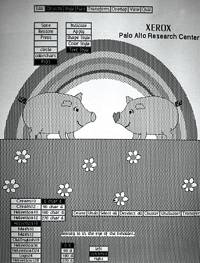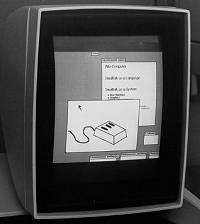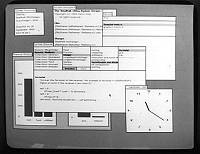|
|
Location: GUIs >
Xerox >
The Xerox Alto
The Xerox Alto systems, because of their power and graphics, were used for a variety of research purposes in to the fields of human-computer interaction and computer usage.
There were a number of programming environments for the Alto. System languages included BCPL and MESA. These were very low level languages, even to the point where each of these used their own CPU microcode. Higher level languages included Smalltalk and Lisp.
This is what Steve Jobs saw when he visited PARC. Apple went back and implemented a more robust system and added pull down menus, desktop drag and drop, the menu bar, the Apple system menu, and modern copy and paste. Xerox had no interest in producing a general purpose computer. They were, and still are, a company who's products revolve around the creation and use of paper documents. They saw the general purpose computer, electronic documents, and electronic document transfer, as a potential threat to their existing business. It is perhaps strange then that they made this research so open and let so many people see it. Personally I think we should be glad they did. If they had not then someone else might have "invented" all of this and lay claim to it locking everyone else out of using GUI technology. Xerox did, however, later use Alto technology to to create a single purpose document processor, the Xerox 8010 or "Star". |


